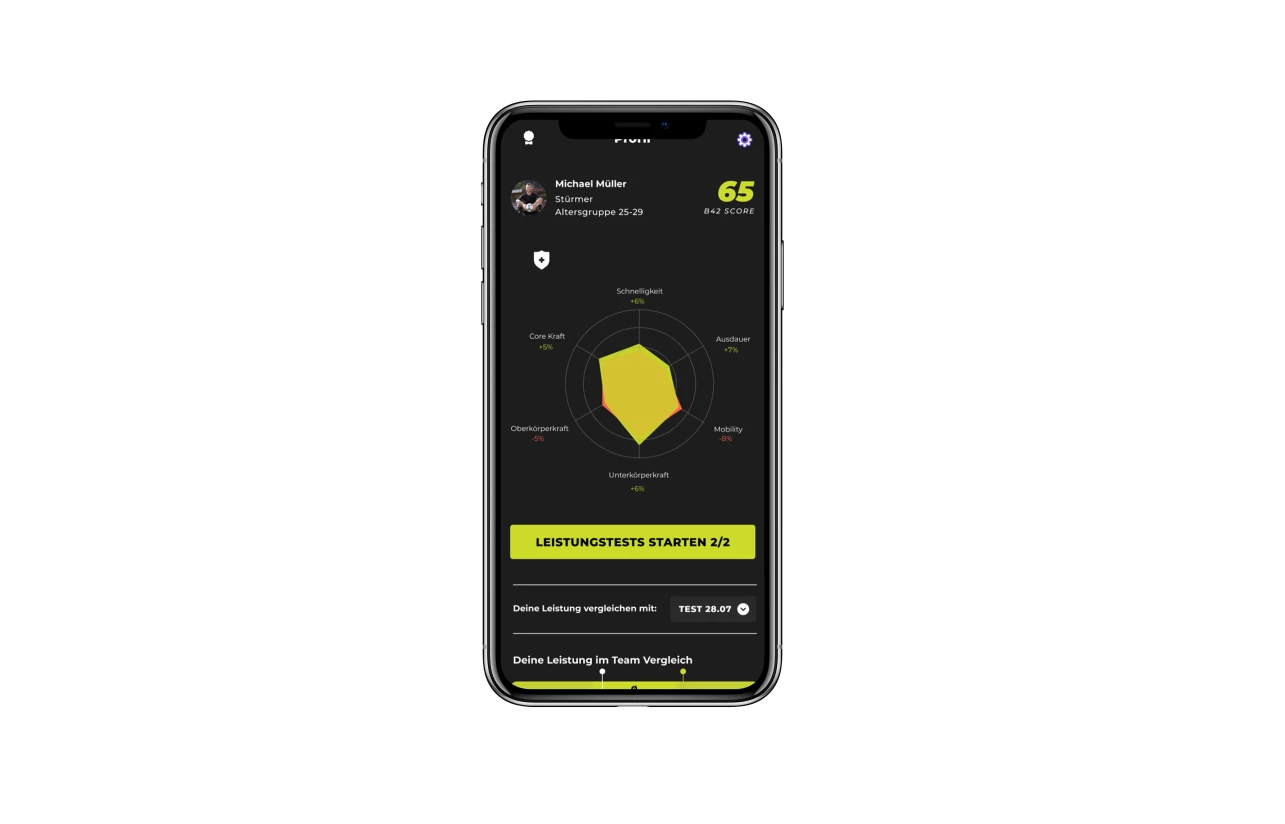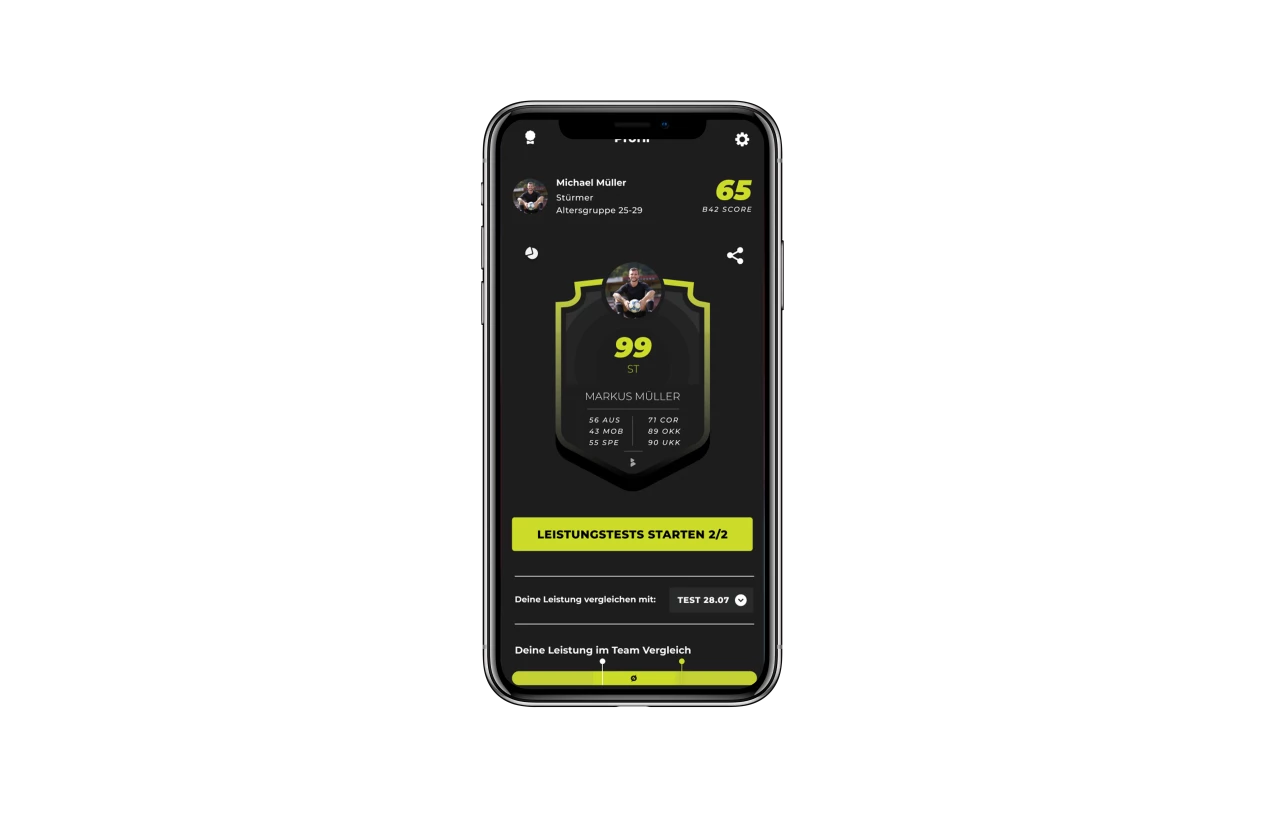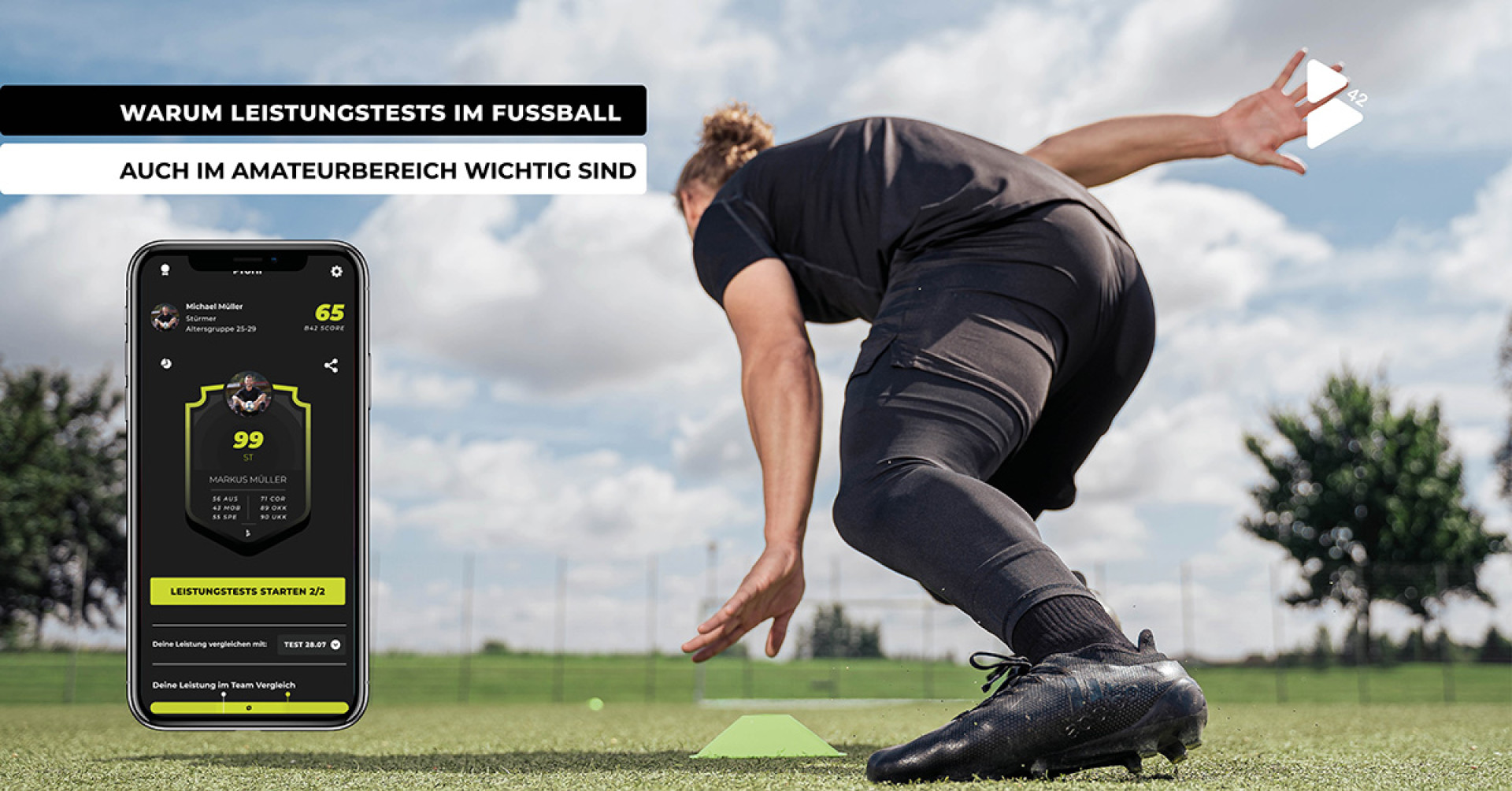Performance reviews are part of good training control in the upper amateur and of course in the professional area. But performance reviews are not only necessary in this area. Who doesn't know the pictures when a new player is to be signed and he is fully wired and wearing a breathing mask on a treadmill?!

The importance of testing physical parameters in professional football refers on the one hand to the general physical performance at certain points in time (preparation, after preparation, etc.), but on the other hand, some tests also serve to record the physical readiness within smaller time intervals (= monitoring).
U21 athletic trainer Raphael Schuler from the Swiss first division club FC St. Gallen has told us what such a test framework can look like in concrete terms at the professional level. Four "major" tests are scheduled each year, before and after preparation. The players undergo a YOYO-intermitted recovery test (endurance), a 40m sprint (including section time measurement) and a 5-10-5 change of direction test. During the season, the strength and jumping values of the players are also measured in order to be able to make a differentiated statement about their current physical condition. All results are then incorporated into individual or team-wide training plans.
Regardless of whether you are a professional player or an amateur, performance tests are primarily intended to do one thing: diagnose the ACTUAL state of your physical performance at the time of the examination.
This blog article is less about specific tests, but rather about defining why a selective check of certain parameters can be useful and which parameters we have included in our test battery as B42.
As already mentioned, a performance test is supposed to give an overview of the current condition of the players. It is an inventory of certain physical characteristics. The desired TARGET condition of the players should then be derived from the ACTUAL condition survey. Only if a target value is defined, it makes sense to determine the ACTUAL STATE.
But don't worry, the target can also be to improve in comparison to the ACTUAL survey. In professional sports, there is a myriad of data that coaches* can use as reference points for their own team: Running performance per game (in km), sprints per game, passing frequency, jumping performance, strength scores, and much more.
If, as in amateur sports, no or few reference values are available, coaches can use this formula to formulate a TARGET STATE:
Target + Magnitude + Time = TARGET.
Example:
Increase endurance performance (e.g. Beep Test) + 2 more rounds + 4 weeks = TARGET.
Of course, this example is only meant to be a general reference and is by no means universally valid.
In training theory/science, it has become established, regardless of the sport, to evaluate the categories of motor skills strength, endurance, agility, coordination, and speed (cf. Fleishmann, 1972). The extent to which the different categories are weighted in the tests depends on the one hand on the sport and on the other hand on the expertise, experience and personal preference of the coaches. For football, this means that coaches need to look at the analysis of the game in advance to identify what they want to find out with the tests and how the results could be incorporated into the training.
This brings us to the second major pillar of performance review: training management. Nothing is worse than a test whose result is then disregarded for training moving forward. A sequence of tests should not only serve the coaches* to put the players in a testing situation, so it is not an end in itself. The results should provide the trainer with a solid basis of information from which to base future training. For example, if the test of endurance performance shows that the team, on average, has insufficient "endurance," the intervention measure might be an increase in the intensity or volume of training sessions.
Furthermore, a stable test environment is important when implementing the performance tests, regardless of the level. The framework conditions should therefore be as reproducible as possible so that one can compare the individual results at all. For example, if the sprint test at the start of the preparation period is initially performed on a tartan track, the same test at the end of the preparation period should not be performed on a piece of grass with a slope. Some conditions can be controlled much better (surface, equipment, date) than others (individual stress factors such as nutrition, fatigue, workload or weather).
There are three quality criteria of tests/measurements, from which in turn three questions can be derived. Validity, reliability and objectivity:
does the test measure what it is supposed to measure?
If I want to measure my endurance performance, a pull-up test is unfortunately of no use.
does the test give similar results under the same conditions?
30m sprint on green grass = 4.6s
30m sprint on running tracks = 3.4s
can I rule out the possibility of the results being influenced by the people involved or myself?
Of course, as B42, we have to allow certain shades of gray in the selection of our test series at one point or another, since certain tests would require a horrendous amount of expensive measuring instruments. Nevertheless, all of the individual tests we include in the test series stand up to the aforementioned quality criteria.
The purpose of a performance test is therefore the determination of the current ACTUAL STATE, on the basis of which the training control takes place. This is exactly what YOU should be able to find out with our performance test. We create the optimal conditions for you to evaluate yourself in the areas of endurance, agility, strength and speed, in order to find the best possible program for your personal performance improvement following this individual inventory.





